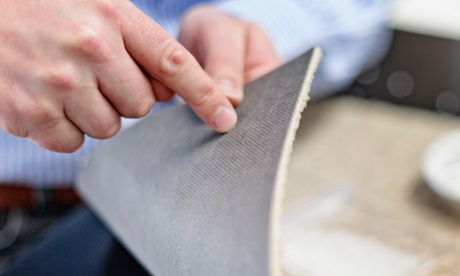
Walk the talk is an overused piece of management speak. But in the case of Desso, a Dutch carpet manufacturer, it aptly describes the company’s passion for zero waste and its pursuit of cradle-to-cradle design and manufacturing.
A cradle-to-cradle approach is all about moving from a linear economy model to a closed loop circular one, where good and services are designed from the start for re-use and where waste can be turned into higher value goods.
Today around 70% of the materials used in Desso’s carpet tile business meet circular criteria. And the company is far from complacent – it is constantly looking for ways to improve its performance.
Thanks to an innovative partnership with the water industry, Desso has become the first carpet business in the world to develop a way to upcycle calcium carbonate from a water waste stream, rather than relying on newly mined chalk, an important raw material in carpet making.
The collaboration came about after Desso gave a talk on the virtues of cradle-to-cradle production. In the audience were a group of leaders from local water companies who were immediately struck that waste from their industry could be a valuable resource for the carpet company. The process of softening water to make it suitable for drinking, produces a residue of calcium carbonate – the very material that Desso needs.
Three years of research and development by the partners, has resulted in an upcycled and re-engineered calcium carbonate suitable to be used in making carpet tiles. Currently half of Desso’s demand – around 12,000 tonnes – is being met this way, with plans to lift that to as much as 20,000 tonnes, eventually.
There are challenges, however. The price of the new material is twice the cost of mined chalk. But Desso is prepared to absorb this cost to keep its shift towards a circular economy model moving forward. Walking as well as talking.







